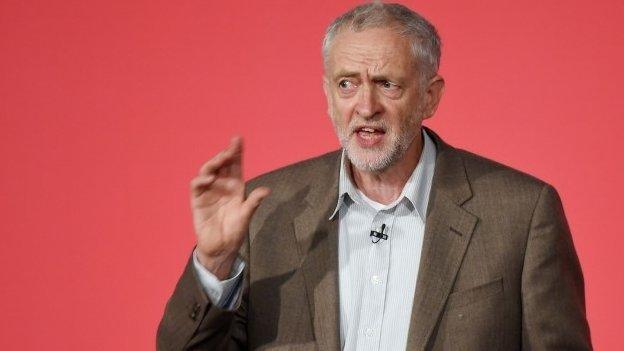Labour leadership: Corbyn under fire for Bin Laden comments
- Published
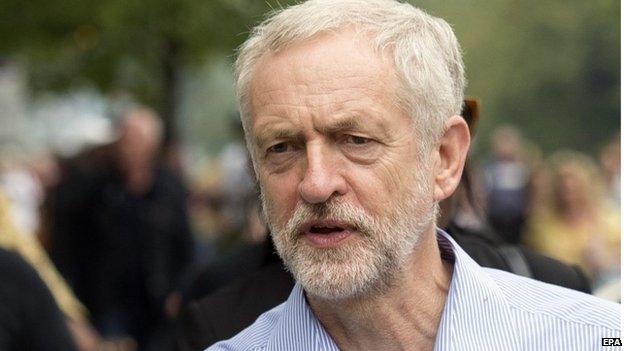
Jeremy Corbyn has been criticised for saying it was a "tragedy" that Osama Bin Laden was killed rather than being put on trial.
The Labour leadership frontrunner made the remarks in 2011, shortly after the al-Qaeda chief was shot dead.
A spokesman for Mr Corbyn defended the remarks saying he was "a total opponent of al-Qaeda, all it stands for".
Meanwhile Andy Burnham appealed to undecided voters, saying it was still "all to play for" in the election.
The other candidates in the race are fellow shadow cabinet minister Yvette Cooper and Liz Kendall.
In an interview with Iranian Press TV show The Agenda, Mr Corbyn described the attack on the World Trade Centre, wars in Afghanistan and Iraq and the death of Bin Laden as tragedies, arguing "the solution has got to be law not war".
"There was no attempt whatsoever that I can see to arrest him and put him on trial, to go through that process," he said.
"This was an assassination attempt, and is yet another tragedy, upon a tragedy, upon tragedy."
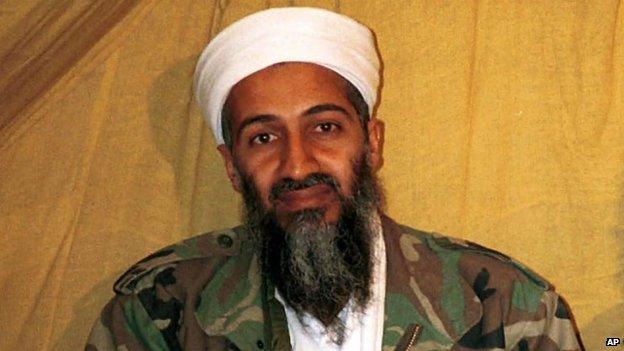
Osama Bin Laden was killed by US special forces in May 2011
Liberal Democrat leader Tim Farron said Mr Corbyn was "utterly wrong" for what he had said while Kevan Jones, Labour's defence spokesman, said: "This just shows you how out of touch he is with what most people's views are."
Conservative MP Nadhim Zahawi said: "Osama bin Laden was a terrorist who any sensible human being in the world would want either killed or arrested. For him to call this a tragedy and appear to compare it to what happened on 9/11 is frightening."

Labour leadership contest
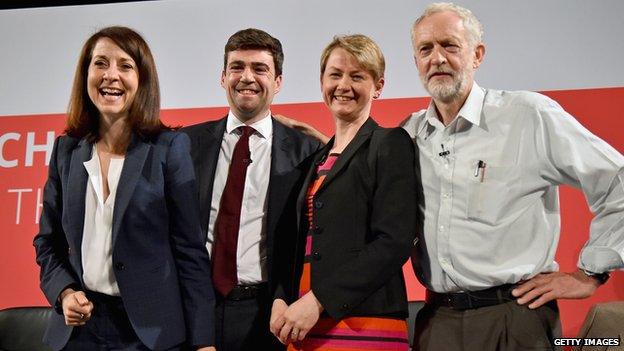
Labour leadership candidates (l-r): Liz Kendall, Andy Burnham, Yvette Cooper, Jeremy Corbyn
Who are the candidates? Andy Burnham, Yvette Cooper, Jeremy Corbyn, Liz Kendall
Dates: Ballot papers will be sent out on Friday; voting can take place by post or online. They must be returned by 10 September. The result is announced on 12 September
Who can vote? All party members, registered supporters and affiliated supporters - including those joining via a union
What is the voting system? The Alternative Vote system is being used so voters are asked to rank candidates in order of preference
How does it work? If no candidate gets 50% of all votes cast, the candidate in fourth place is eliminated. Their second preference votes are then redistributed among the remaining three. If there is still no winner, the third place candidate is eliminated with their second preferences (or third in the case of votes transferred from the fourth place candidates) redistributed. It is then a head-to-head between the last two candidates

The interview is the latest in a series of past comments and associations the left-winger has been forced to defend since running for leader.
The majority of votes are thought to have already been cast, but fellow contender Mr Burnham told a rally in Pudsey, West Yorkshire, there were still tens of thousands of people yet to vote and it was still "all to play for".
"I will bring forward a bold manifesto that can win for Labour at the next general election, and that's the appeal that I'm making to all people undecided in this election."
He said his leadership would "unite the party" and Labour would no longer "dance to the tune of the Tory party".
The result of the leadership race will be announced on 12 September.
- Published12 September 2015
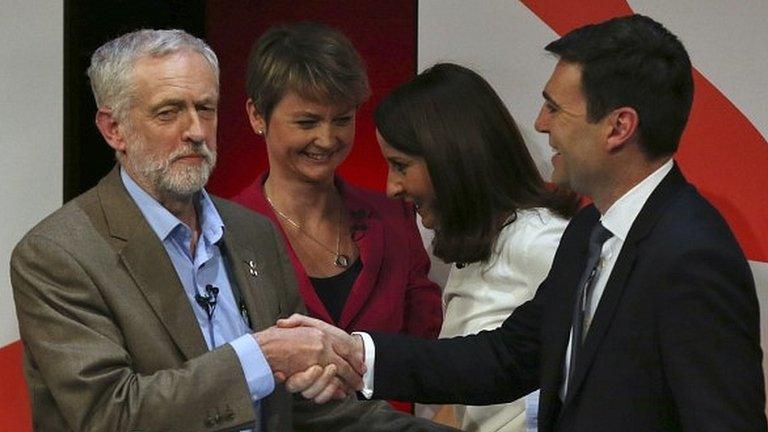
- Published14 August 2015
